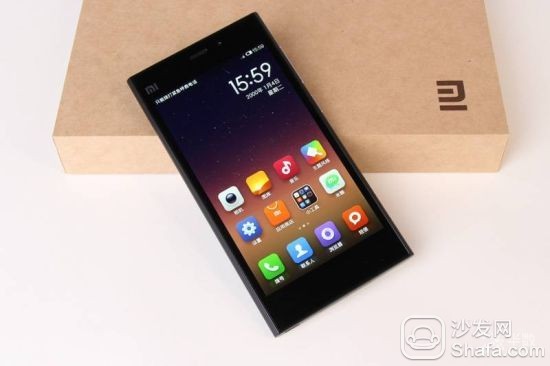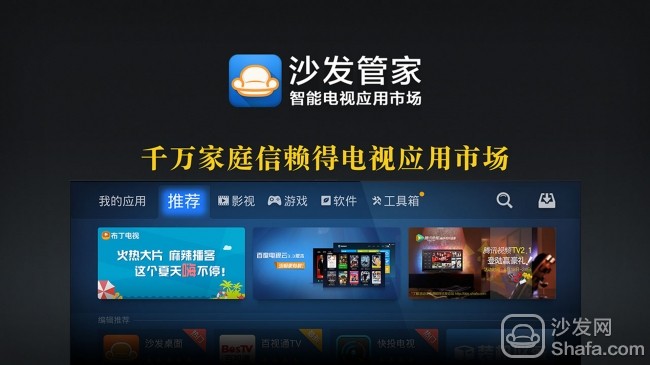Millet is not a good example for China

Millet is not a good example for China
Today's Xiaomi has two names in the western media: first, "the Chinese think of the East Apple"; second, "the cottage Apple." Xiaomi did not bring positive energy to the Chinese-made international reputation. On the contrary, he demonstrated the spring of Chinese-made skirts to the whole world with a sense of justice.
Xiaomi Technology, founded by a group of Chinese engineers, released its mobile phone for the first time in August 2011 and sold it for two days. By 2012, Xiaomi’s mobile phone has sold 2 billion US dollars. This company is not the same as the previous Chinese manufacturing companies. Their image is cutting-edge, and they are full of personality from products to customer service.
What did the New York Times say when it was?
"From the appearance to the feeling all imitate the iPhone, and even marketing means are copied directly from Apple's secrets."
Millet did copy a lot of Apple's details: from the control interface, compass, calendar, to the calculator is a direct copy of a standard does not change. Apple's iCloud millet also changed its name to "MiCloud." The world’s most influential fruit powder, John Gruber, is also blogging about Xiaomi in three days. Of course, he also admitted that Xiaomi copied a bit of taste, and Samsung did not taste anything.
Today's Xiaomi has two names in the western media: first, "the Chinese think of the East Apple"; second, "the cottage Apple." Which do you think sounds more pleasing to the ear?
For these two nicknames, it is estimated that Xiao Jun’s founder Lei Jun did not like it either. He stressed more than once: Do not like to be called Rebs, do not like Xiaomi to be called Chinese apple, because Western media use "the Chinese apple" the word, always have some bad intentions.
Xiaomi took only four years to board the world's top three smartphone sales. Today's "Reebs" and Ma Yun are national idols. Recently, the chairman of the Gree Group, Dong Mingzhu, openly fired shots at Xiaomi and the United States. The patent said that the two companies were all "crooks." Gree is a good student in China's manufacturing industry. Dong Mingzhu's not calm but let others read jokes - because of the rapid wealth of millet specimens, many people have already lost sight of traditional manufacturing. The upstart of the Internet, such as Xiaomi, is lighter in assets, new in thinking, and faster in making money. Lei Jun looks forward to 2015, Xiaomi's mobile phone will sprint hundreds of billions of sales, and many traditional manufacturing companies will not necessarily achieve it for 10 years.
In this way, benchmarking companies that represent China’s Internet industry have been blocked since they first came to India.
Ericsson accused Xiaomi of infringement of patent rights. Xiaomi's mobile phone was banned from selling in India. Even the director of international sales dug up by Google could not extinguish the fire. It is said that the disaster is not alone, Xiaomi Technology just released the air purifier was questioned by Japanese companies to steal patents. For a time, both the hospital and the hospital caught fire.
Facts have proven that Xiaomi did not bring positive energy to China’s international reputation. On the contrary, Xiao Qian displayed the Chinese-made spring of the whole country with a sense of justice.
Yesterday, the Shenzhen Stock Exchange Xiaomi Technology Investment announced the United States, Xiaomi Technology's 2013 revenue of approximately 26.583 billion yuan (6.1895, -0.0010, -0.02%), net profit of 347 million. This net profit was 1/10 of the Wall Street Journal's valuation in November. The Wall Street Journal estimated that millet made about 3.46 billion yuan in 2013. And, in fact, they did not figure out how a company that sells cheap mobile phones could make so much money.
The Wall Street Journal once explained that their previous judgments on Xiaomi’s profits came from internal information provided by Xiaomi Technology to some banks, in order to lend a billion US dollars for their overseas expansion or acquisition.
It is not known whether Xiaomi cheated the bank or whether the bank å¿½æ‚ the Wall Street Journal. However, it is clear that Xiaomi has not only failed to create a miracle of cheap high profits, but has also been hindered by the shortcomings of self-owned property rights. The internationalization has been unfavorable. Overseas expansion is even more dangerous.
Prior to Patsnap, a management consultancy company, made statistics on the number of Chinese patent holders held by domestic mobile phone manufacturers. Xiaomi’s sales were the highest, but patent reserves were the lowest, which was less than 1/5 of that of Lenovo; 3% of ZTE; and 2.7% of Huawei. According to the statistical data of the State Intellectual Property Office, Apple has obtained 48 times the number of patents granted by Xiaomi in terms of the number of inventions granted. In the Chinese market, Xiaomi also has patent disputes with Chinese companies because of streaming media TV services. This giant in sales is a dwarf in property rights.
Besides Apple, Forbes magazine once analyzed Apple's patent strategy. Since 2000, Apple’s number of patents and net income curve growth have been mutually reinforcing. When the patent volume increased from 120 to 3,500, the company’s net income also increased by nearly 25 times. In 2007, the release of Apple's mobile phone, Apple's patent number is entering the fast-growing fast track. In March 2010, Apple launched a patent lawsuit against HTC, when Xiaomi’s mobile phone was not born.
On a global scale, Apple also successively opened fire on Nokia, Motorola and Samsung. The patent war with Samsung lasted four years. It was not until August this year that they withdrew their patent litigation outside the United States. Apple obtained US$930 million. Claims ended. This is what happened before you.
Facts have proved that keeping intellectual property right is competitive. If you do not have property rights, it is only a matter of time before you get into trouble.
By contrast, the false prosperity of Xiaomi is to push Internet thinking onto the altar and trigger the madness of the whole people. Any traditional industry is not concerned with improving its own knowledge reserves and technical content, but how to use the Internet to return to life.
However, in reality, the advantages of Chinese manufacturing are still installed or counterfeited. Millet did not change anything, but it took the cottage to another height. There are still 1.3 million people in China working for Foxconn - this company is installed by Apple, Nokia, Sony and other brands. China's manufacturing industry does not want to be trapped at the very end of the value chain, but also wants to quickly climb to the top of the value chain. However, this shortcut to the Internet is just a matter of fact.
From German Volkswagen, Bosch to Stuttgart's giant Daimler. Many of these Fortune 500 companies have been established for more than 100 years. Most of them still maintain an annual growth rate of 8% to 10%. The innovation of the technology industry is the secret to the longevity of these companies. And each year their investment in research and development, no one less than 3% of sales. Novartis Switzerland, 2013 R & D investment of 9.9 billion US dollars, is 16.8% of annual sales. If it is important to say that the independent property rights of the pharmaceutical industry, Google is also relying on independent research and development to keep its status. The industry may be different, but the mentality and business ethics are the same.
With respect to Chinese manufacturing, in the end, no matter how else, it can only go back to the issue of intellectual property rights, even if the scenery is like millet eventually can not get around this poisonous curse.
Recommended installation sofa butler Download: http://app.shafa.com/
